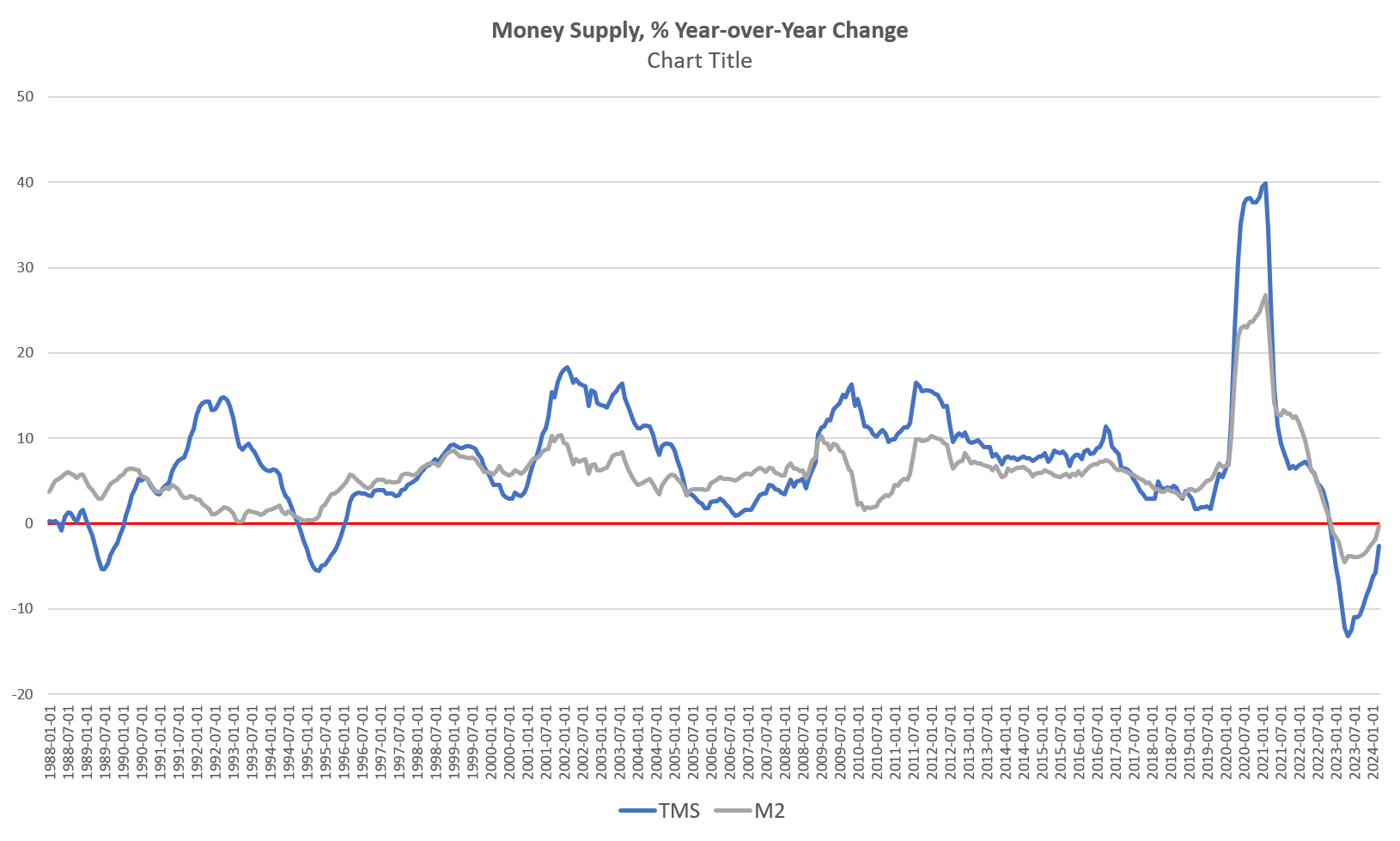Category Archive: 6b.) Mises.org
The Bank of England: Money Creation in Their Own Words
Central banks usually don't admit their guilt in the destruction of money, but the Bank of England unwittingly comes clean.
Original Article: "The Bank of England: Money Creation in Their Own Words"
This Audio Mises Wire is generously sponsored by Christopher Condon.
Read More »
Read More »
The Last Lie Government Will Ever Tell
The more powerful a government, the more likely it is to engage in war and conquest. Case in point: US involvement in Ukraine.
In 2014 the US led a coup that displaced a “democratically elected” president, Viktor Yanukovych.
In November 2013, . . . Yanukovych rejected a major economic deal he had been negotiating with the EU and decided to accept a $15 billion Russian counteroffer instead. That decision gave rise to antigovernment demonstrations...
Read More »
Read More »
Socialism Isn’t about Creating Economies. It Is about Amassing Political Power
Most socialists are not misguided about how to have a prosperous economy, for that is not their goal.
Original Article: "Socialism Isn't about Creating Economies. It Is about Amassing Political Power"
This Audio Mises Wire is generously sponsored by Christopher Condon.
Read More »
Read More »
Influencers and Subjective Value: They Have Something to Teach Us
The latest from the world of social media is the role of "influencers." There is a perfectly good economic explanation for their popularity.
Original Article: "Influencers and Subjective Value: They Have Something to Teach Us"
This Audio Mises Wire is generously sponsored by Christopher Condon.
Read More »
Read More »
How Banking Could Work
With commercial banks exposed by the recent bailouts, Americans question whether “their money” is truly safe despite the promises of FDIC insurance.
Jeff and Bob walk through the mechanics of how a full reserve bank could work in a truly free market based on the concepts and taxonomy of Mises’s Theory of Money and Credit.
Mises's A Theory of Money and Credit: Mises.org/TMC
Bob's study guide to A Theory of Money and Credit: Mises.org/HAP388a
John...
Read More »
Read More »
Inflation Can Get Much Worse
In this episode, Mark looks at the far away minor issue of the impact of hyperinflation in Zimbabwe. Even though they have switched from Zim dollars to US dollars, ordinary people are still suffering. Their government and its inflationary monetary policy is manifesting itself in some interesting ways.
Be sure to follow Minor Issues at Mises.org/MinorIssues.
Read More »
Read More »
The Myth of “Economic Power”
A very common criticism of the libertarian position runs as follows: Of course we do not like violence, and libertarians perform a useful service in stressing its dangers. But you are very simpliste because you ignore the other significant forms of coercion exercised in society—private coercive power, apart from the violence wielded by the State or the criminal. The government should stand ready to employ its coercion to check or offset this...
Read More »
Read More »
Democracy Created Canada’s Lethal Healthcare System
The provision of private healthcare in Canada is contingent on the ability of private actors to satisfy all of the conditions embedded within government legislation. However, the severity of these conditions means that most aspects of private healthcare are essentially outlawed, as they have been for many decades.
Perhaps that wouldn’t matter if the government kept the promise it made to Canadians when it arbitrarily imposed universal healthcare...
Read More »
Read More »
Climate Activism: The Second Children’s Crusade
Modern secular society embraces a new religion complete with prophets, crusaders, commandments, contrition, and even a holy land: East Anglia, United Kingdom. These congregants will behave idiosyncratically in the economy. The activist green movement increasingly parallels Western religious structure, even generating a modern version of the medieval Children’s Crusade.
Motivated by hope, the first Children’s Crusade assembled in 1212 under the...
Read More »
Read More »
The Rise of the Medical Security State
The New Abnormal: The Rise of the Biomedical Security Stateby Aaron KheriatyRegnery Publishing, 2022; xxv + 278 pp.
Aaron Kheriaty is a medical doctor who taught for many years at the University of California Irvine School of Medicine and headed the school’s medical ethics program. Though highly regarded as a teacher, he became a “nonperson” when he challenged the university’s compulsory covid vaccination policy and was fired from his position: “In...
Read More »
Read More »
Karl Marx Was Not an Economist
Despite the massive intellectual feat that Marx’s Capital represents, the Marxian contribution to economics can be readily summarized as virtually zero. Professional economics as it exists today reflects no indication that Karl Marx ever existed.
—Thomas Sowell
If socialists understood economics they wouldn’t be socialists.
—F.A. Hayek
Karl Marx is a very popular name in social sciences. As a scholar of the nineteenth century, he is still a part of...
Read More »
Read More »
The Political Response to our Banking Crisis
This week on Radio Rothbard, Ryan McMaken and Tho Bishop are joined by Peter St. Onge, a fellow at the Heritage Foundation and a regular contributor to the Mises Wire. This episode looks at the political response to the recent turmoil in the banking system and how the Austrian position looks today relative to 2008. St. Onge makes a case for optimism.
[embedded content]
Recommended Reading
"It Turns Out That Hundreds of Banks Are at...
Read More »
Read More »
Libertarian Law by Democratic Means: Utilitarianism and the Demythologization of Authority
Mises saw essentialist values as fallacies because they were unverifiable and saw metaphysical ideas as a key component of authoritarianism. His solution was utilitarianism.
Original Article: "Libertarian Law by Democratic Means: Utilitarianism and the Demythologization of Authority"
This Audio Mises Wire is generously sponsored by Christopher Condon.
Read More »
Read More »
Statism Is Destroying Real Wages
When we read about the US economy, we often get wage growth as a signal of a strong labor market. It is hardly a strong market when the labor participation rate and the employment to population ratio are both below the February 2020 level and have been stagnant for months.
Additionally, the headline figure of 4.6 percent annualized wage growth is misleading, as it shows a nominal and average figure that disguises a much tougher environment....
Read More »
Read More »
Don’t Take Liberties with Liberty
Have you ever thought about the relationship between the words liberty and freedom? Frequently, the words are used interchangeably, but I have always preferred liberty.
Perhaps my preference goes back to Thomas Jefferson’s reference to “life, liberty, and the pursuit of happiness” in the Declaration of Independence. Perhaps it traces to Patrick Henry’s “Give me liberty or give me death.” Perhaps it is because “with liberty and justice for all” is...
Read More »
Read More »
Reparations Are a Statist Cudgel for Bludgeoning Property Owners
San Francisco, as well as the government of California, is calling for millions in "reparations" for black people in that state. Reparations, unfortunately, are fast becoming another anti-property-owner racket.
Original Article: "Reparations Are a Statist Cudgel for Bludgeoning Property Owners"
This Audio Mises Wire is generously sponsored by Christopher Condon.
Read More »
Read More »
Nonmeasure for Nonmeasure
How do people in a pluralistic society live peacefully with each other? In his review of Kenneth McIntyre's book, David Gordon points to negative liberty as the best way to preserve values.
Original Article: "Nonmeasure for Nonmeasure"
This Audio Mises Wire is generously sponsored by Christopher Condon.
Read More »
Read More »
Silicon Valley Bank and the Failure of Fractional Reserve Banking
The story of the failure of Silicon Valley Bank is the story of nearly every bank failure. Fractional reserve banking invites the risky behavior that brings down the banking system.
Original Article: "Silicon Valley Bank and the Failure of Fractional Reserve Banking"
This Audio Mises Wire is generously sponsored by Christopher Condon.
Read More »
Read More »
How Politicians Use Regulations to Deflect Blame
The pro-life activist Randall Terry has a famous quote that anyone who cares about politics should be familiar with: “He who frames the question wins the debate.”
Politicians are well aware of this fact, which is why they spend much of their time directing the political conversation into frameworks that benefit them. If they can get us arguing over how best to “reform” the education system, for instance, there will be little discussion about the...
Read More »
Read More »
The Fear of Mass Unemployment Due to Artificial Intelligence and Robotics Is Unfounded
Ever since the Luddites rampaged through British textile factories in the early 1800s, people have feared that technology will result in mass unemployment. They were wrong then and are wrong now.
Original Article: "The Fear of Mass Unemployment Due to Artificial Intelligence and Robotics Is Unfounded"
This Audio Mises Wire is generously sponsored by Christopher Condon.
Read More »
Read More »






























